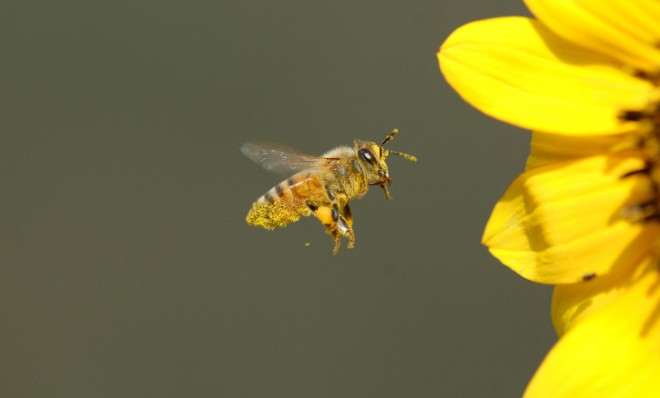Croatia's land mine–detecting honey bees
An estimated 90,000 land mines were planted in the country from 1991 to 1995

A free daily email with the biggest news stories of the day – and the best features from TheWeek.com
You are now subscribed
Your newsletter sign-up was successful
Crazy ants may be causing headaches for homeowners in the southeastern United States. But over in Croatia, insects — honey bees, to be precise — are being tapped for more useful ends: Detecting dangerous and undetonated land mines.
Croatia is littered with what NatureWorldNews terms "the relics of war." An estimated 90,000 land mines were planted from 1991 to 1995 during the Balkan Wars that tore the former Yugoslavia apart. In the two decades since, undetonated mines have claimed 316 lives, including 66 de-miners, reports the Associated Press.
Enter Nikola Kezic, a professor and honey bee expert at Zagreb University. He has created an experiment that tricks bees into associating the smell of food with the smell of TNT. Imagine you're a de-miner: Instead of setting foot in a potentially dangerous mine field to sift through dirt manually, you would first unleash a swarm of insects that would gather over latent explosives without setting them off.
The Week
Escape your echo chamber. Get the facts behind the news, plus analysis from multiple perspectives.

Sign up for The Week's Free Newsletters
From our morning news briefing to a weekly Good News Newsletter, get the best of The Week delivered directly to your inbox.
From our morning news briefing to a weekly Good News Newsletter, get the best of The Week delivered directly to your inbox.
According to NatureWorldNews, Kezic used "classic Pavlovian conditioning" to train the bees into becoming unsuspecting bomb squads, mixing a sugar solution with TNT powder:
Once enough bees are trained to seek the scent of TNT, swarms of them will be released into already de-mined fields, where there is still a real risk of accidentally tripping an unaccounted for land mine. Researchers can use heat-seeking cameras to track the trained bees, which will gather around any undetected mines. [NatureWorldNews]
If successfully utilized in the field, the bees would be joining good company: Dogs, dolphins, rodents, and all sorts of other animals have served as bio-tools to find dangerous explosive weapons. The United States, in fact, has been experimenting with bomb-detecting insect swarms since at least 2002, although it's unclear how much progress researchers have made.
The New York Times reported back then that the Air Force even planned on outfitting the paramilitary bees with computer-trackable sensors about the size of a grain of salt. Yes, that means the government was building a micro-squadron of cybernetically augmented, bomb-sniffing insects.
A free daily email with the biggest news stories of the day – and the best features from TheWeek.com
-
 The environmental cost of GLP-1s
The environmental cost of GLP-1sThe explainer Producing the drugs is a dirty process
-
 Greenland’s capital becomes ground zero for the country’s diplomatic straits
Greenland’s capital becomes ground zero for the country’s diplomatic straitsIN THE SPOTLIGHT A flurry of new consular activity in Nuuk shows how important Greenland has become to Europeans’ anxiety about American imperialism
-
 ‘This is something that happens all too often’
‘This is something that happens all too often’Instant Opinion Opinion, comment and editorials of the day